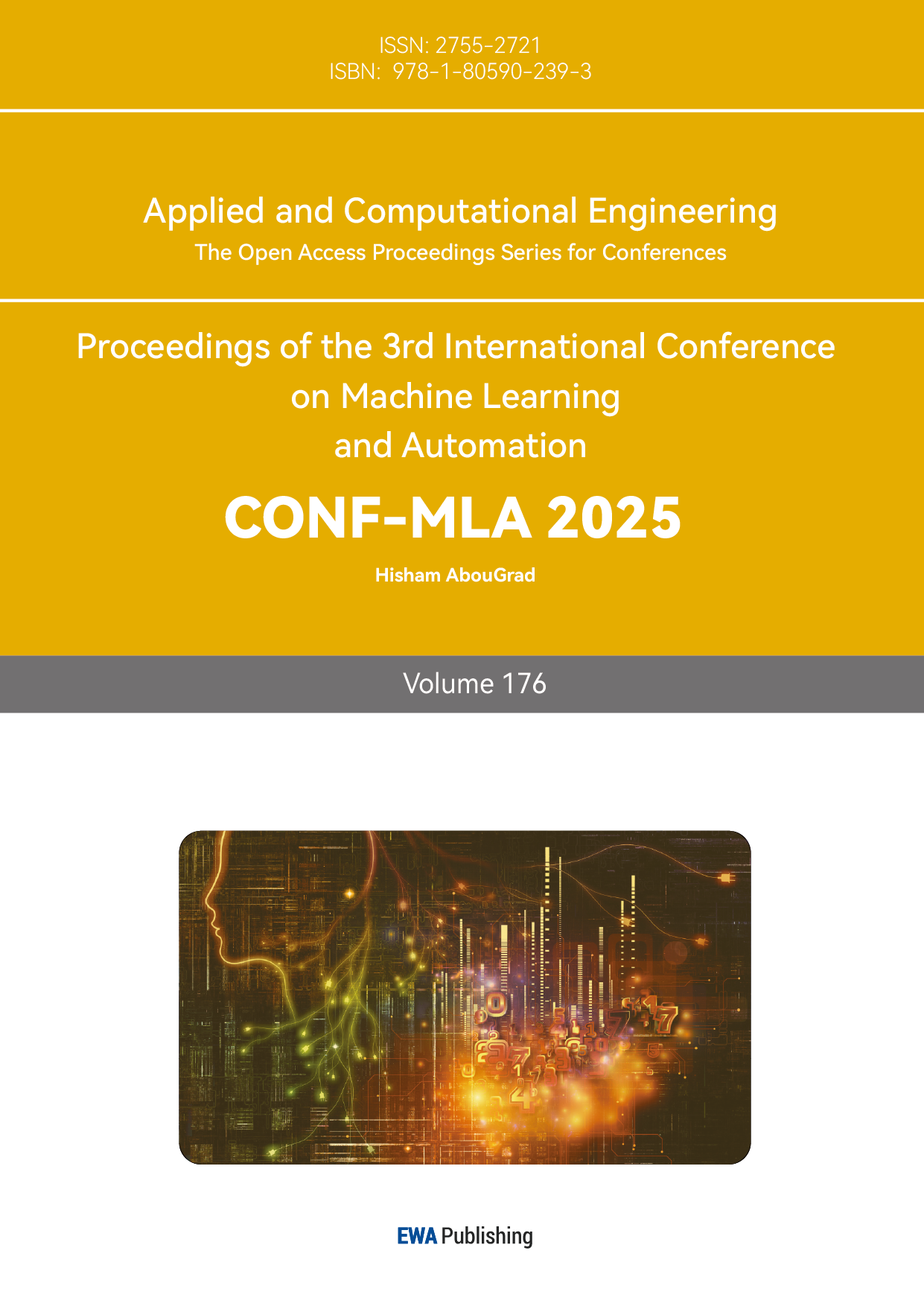References
[1]. Rashid, A., Rasheed, R., Ngah, A. H., Pradeepa Jayaratne, M. D. R., Rahi, S., & Tunio, M. N. (2024). Role of information processing and digital supply chain in supply chain resilience through supply chain risk management. Journal of Global Operations and Strategic Sourcing, 17(2), 429-447.
[2]. Mitra, R., & Zualkernan, I. (2025). Music generation using deep learning and generative AI: a systematic review. IEEE Access.
[3]. Yue, M., Xueyang, C., & Ziyun, Q. (2025). A conceptual framework for the path of digital preservation of intangible cultural heritage: A thematic review. Multidisciplinary Reviews, 8(2), 2025045-2025045.
[4]. Skublewska-Paszkowska, M., Milosz, M., Powroznik, P., & Lukasik, E. (2022). 3D technologies for intangible cultural heritage preservation—literature review for selected databases. Heritage Science, 10(1), 3.
[5]. Barnett, J., Garcia, H. F., & Pardo, B. (2024). Exploring musical roots: Applying audio embeddings to empower influence attribution for a generative music model. arXiv preprint arXiv: 2401.14542.
[6]. Selmanović, E., Rizvic, S., Harvey, C., Boskovic, D., Hulusic, V., Chahin, M., & Sljivo, S. (2020). Improving accessibility to intangible cultural heritage preservation using virtual reality. Journal on Computing and Cultural Heritage (JOCCH), 13(2), 1-19.
[7]. Pandey, B. K., Kanike, U. K., George, A. S., & Pandey, D. (Eds.). (2024). AI and machine learning impacts in intelligent supply chain. IGI Global.
[8]. Kanhov, E., Kaila, A. K., & Sturm, B. L. (2024). Innovation, data colonialism and ethics: critical reflections on the impacts of AI on Irish traditional music. Journal of New Music Research, 53(1-2), 47-63.
[9]. Teng, Y., Du, A. M., & Lin, B. (2024). The mechanism of supply chain efficiency in enterprise digital transformation and total factor productivity. International review of financial analysis, 96, 103583.
[10]. Natraj, N. A., Abirami, T., Ananthi, K., Venice, J. A., Chandru, R., & Rathish, C. R. (2024). The Impact of 5G Technology on the Digital Supply Chain and Operations Management Landscape. In Applications of New Technology in Operations and Supply Chain Management (pp. 289-311). IGI Global.



